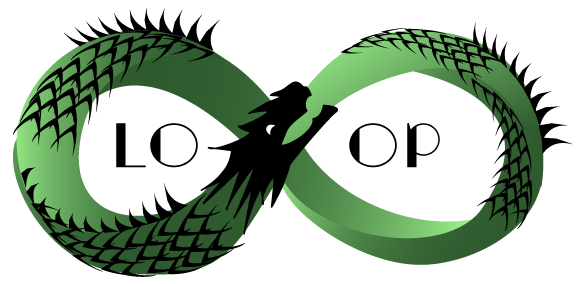Introducing ULA
a Learning Options Study
conducted by LO*OP Center, Inc.
What is Learner Agency?
When we make choices about what, where, when, how, why, and with whom we do anything, we are exercising our personal agency. You might call it freedom, or rights, or entitlement depending on the culture, society, or community you live in. Some of us thrive when we have broad personal freedoms. Others may feel unsafe, disoriented, confused, or uncared for when the society around us doesn't provide enough limits and guidelines. The need to exercise more or less agency is neither good nor bad, it's just part of the nature and nurture that makes up our personality at the moment.
Learners, whether they are students enrolled in a school or college, or independent lifelong learners, are exercising their agency when they choose what to study, who they want to help them, and when to move on to something else.
Learner Agency is associated with motivation, engagement, goal-setting, perception of self-efficacy, and many other psycho-social concepts.
Why is Learner Agency a problem to study and solve?
If you are happy with the degree of agency you are able to exercise in your family, school, workplace, or civil society, then agency isn't a problem. But consider the minority student who feels oppressed and disenfranchised in the street, disrespected at home, bullied on campus, bored at work, and/or required to study irrelevant subjects at school. This person is likely to be labeled as unmotivated, disengaged, a poor learner, or even delinquent. Yet they often excel at sports, constructive trades, or 'hobbies' that require just as much attention, effort, and intellectual capacity as any school subject or job. Could the underlying problem be a mismatch between that person's need for agency and the kind or degree of freedom they have to make choices somewhere in their day-to-day life experience? We can look at difficulties people have when learning and reframe them so that we can see when learners are hampered by being asked to make decisions they cannot handle comfortably or frustrated by having too little choice. Armed with this knowledge, learners (and their parents) may be able to make better educational choices. Teachers may be able to offer more or different opportunities for their students to exercise their agency. Lifelong learners can engage in activities with the level of structure that fits their personal style. When underlying problems with learner agency are solved, many other problems may go away as well.
How do we study it?
Psychologists, educators, sociologists, anthropologists, and philosophers have all studied agency and related concepts for years. There are plenty of different ideas on the topic, many of them conflicting and incomplete. We can start studying by bringing these theories together and looking for ideas that are expressed using different words to capture the same underlying concepts. We can also explore the interface between three things:
- agency as supported (or tolerated or facilitated) by the situation in which a person acts (a particular classroom, for example),
- the actions an individual says they want to take in that situation, and
- what learners actually do in reality.
Much of the research around learner agency so far is based on self-reports, what learners say about themselves. There isn't enough data about what they do in various situations.
Dive deeper into these topics in the Agency Theory and The ULA Study sections of this website.
What difference can understanding learner agency make?
Educational systems around the world are in trouble. Few people disagree on that although they offer many different reasons why this is so and how to fix it. In the developed world, many young people find classrooms boring, irrelevant, confining, and sometimes down right dangerous. Employers struggle to engage their workers in skill improvement programs. But any of us with a smart phone can call up videos that show us how to repair almost anything, essays that explain events, history, or politics anywhere in the world (although perhaps not perfectly accurately), let us tour the art or science museum of our choice, see a movie or a ballet, or read any book or academic article. The same is true for those living in extreme poverty -- if they can get access to the internet. In this information age the relationship between learning and schooling has to change. Understanding which learners need what kind of help and support will let us build better schools and universities, arrange classrooms that feel safe, engaging, and satisfying, and encourage everyone to keep learning throughout their lives.
Is it just for students?
To read more about the theory of learner agency and related concepts, click on Agency Theory above or The ULA Study to see our research and development plans.
About
Learning Options * Open Portal
LO*OP Center, Inc. is a nonprofit company dedicated to educational research, development and consultation on the past and future of appropriate technologies for learning.
Our Mission is to empower people to meet the opportunities and challenges posed by cultural diversity and by technological change through education. We believe that human beings must engage in thoughtful development of their own societies, sciences, and selves. Through learning we can create a society without losers, a sustainable ecology and a population of people who respect and cherish diversity on Earth.
Since 1975 LO*OP Center has been helping to bring new curriculum and learning resources to:
- individuals
- schools
- youth organizations
- hobby clubs
- museums
- companies
- government agencies
Headquartered in Guerneville, California, USA
Impact: worldwide
For more about LO*OP Center, Inc. visit loopcenter.org
